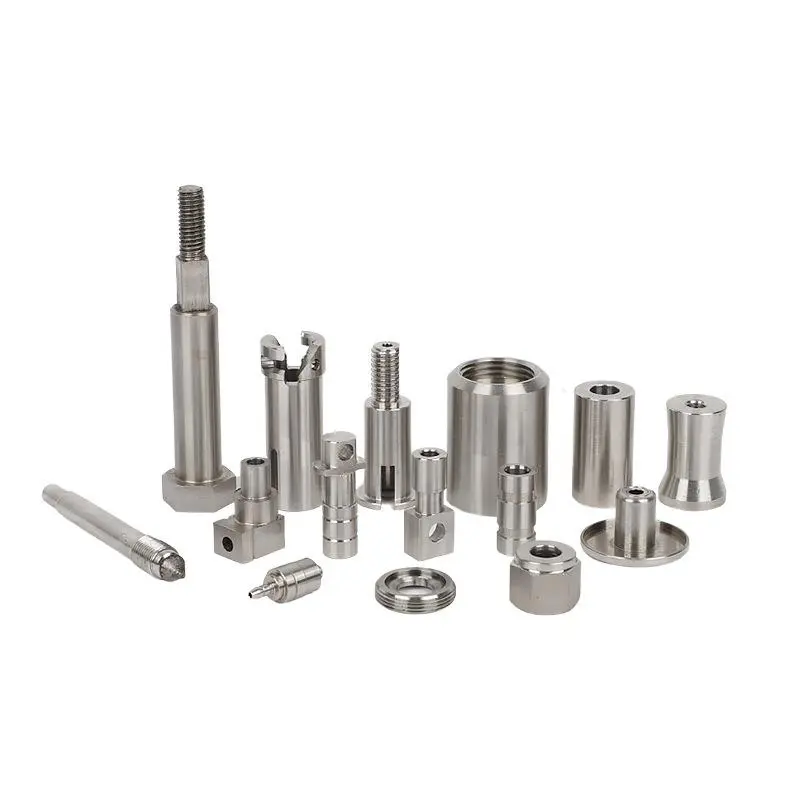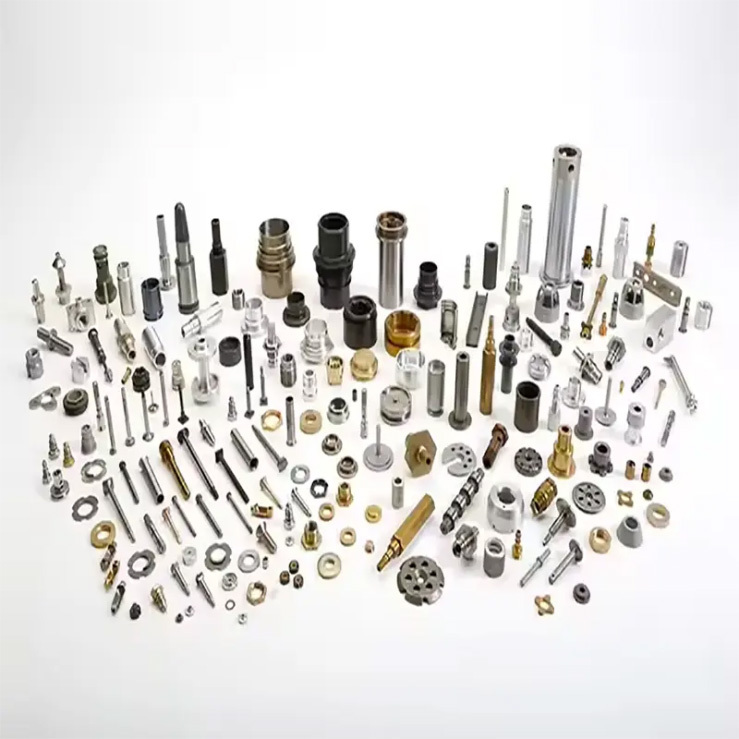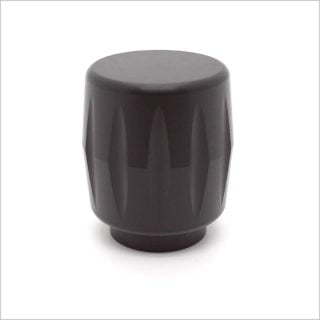Exploring the Remarkable Benefits of CNC Swiss Machining in Stainless Steel Fabrication
Published Time:
2025-10-14
Exploring the Remarkable Benefits of CNC Swiss Machining in Stainless Steel Fabrication
Table of Contents
- Understanding CNC Swiss Machining
- The Process of CNC Swiss Machining
- Advantages of CNC Swiss Machining Technology
- Applications in Stainless Steel Fabrication
- Comparative Analysis with Traditional Machining Methods
- Cost-Effectiveness and Efficiency
- Choosing the Right CNC Swiss Machining Partner
- Future Trends in CNC Swiss Machining
- FAQs
- Conclusion
Understanding CNC Swiss Machining
CNC Swiss machining represents a revolutionary approach to manufacturing, particularly for **precision components** that require meticulous detail. This specialized form of **computer numerical control (CNC)** machining is celebrated for its ability to produce complex parts with tight tolerances. The Swiss machining process utilizes a lathe that features multiple cutting tools, allowing for the simultaneous machining of various features. This technology is particularly advantageous when working with **stainless steel**, due to its ability to handle intricate designs with exceptional accuracy.
The Evolution of CNC Swiss Machining
The origin of Swiss machining dates back to the late 19th century, where it was initially utilized for creating small, precise watch components. Over the years, the technology evolved significantly, incorporating advanced computer systems and automation. Today, CNC Swiss machining is at the forefront of modern manufacturing, enabling industries to meet the demands for efficiency and precision.
The Process of CNC Swiss Machining
The CNC Swiss machining process is characterized by its ability to turn bar stock into a finished product with minimal human intervention. It typically involves the following steps:
1. **Bar Stock Loading**: Material, usually stainless steel, is loaded into the machine.
2. **CNC Programming**: A computer program is created to define the machining operations, including tool paths and cutting speeds.
3. **Machining Operations**: The bar stock is rotated, and multiple tools are employed to cut, drill, or mill the part simultaneously.
4. **Quality Control**: Throughout the process, various checks are implemented to ensure the part meets predefined specifications.
5. **Finishing**: After machining, the parts undergo finishing processes, such as deburring and polishing, to achieve the desired surface quality.
Advantages of CNC Swiss Machining Technology
CNC Swiss machining offers a multitude of benefits, particularly when it comes to stainless steel fabrication. Here are some key advantages:
1. Exceptional Precision and Accuracy
CNC Swiss machines can achieve tolerances as tight as ±0.001 inches, making them ideal for applications requiring high precision, such as aerospace and medical device manufacturing.
2. Enhanced Production Efficiency
The simultaneous operation of multiple tools reduces the overall machining time, enabling manufacturers to produce more parts in less time.
3. Versatility in Design
CNC Swiss machining accommodates a wide range of geometries, from simple to complex designs, making it suitable for various industries.
4. Superior Surface Finish
The precision cutting capabilities of CNC Swiss machines result in components with excellent surface finishes, reducing the need for extensive post-processing.
5. Reduced Waste
The efficient use of material minimizes scrap, making CNC Swiss machining a more sustainable option for manufacturers.
Applications in Stainless Steel Fabrication
CNC Swiss machining is widely adopted across diverse sectors for stainless steel fabrication. Some prominent applications include:
1. Medical Device Manufacturing
Medical devices require components that meet stringent regulatory standards. CNC Swiss machining delivers the precision and reliability necessary for these applications.
2. Aerospace Components
The aerospace sector demands high-performance parts that can withstand extreme conditions. CNC Swiss machining provides the accuracy and material integrity needed for this industry.
3. Automotive Parts Production
From engine components to fittings, CNC Swiss machines can produce complex automotive parts efficiently and accurately.
4. Electronics Industry
Small, intricate components used in electronic devices benefit from the precision of CNC Swiss machining, enhancing product functionality and reliability.
Comparative Analysis with Traditional Machining Methods
When comparing CNC Swiss machining to traditional machining methods, several factors come into play:
Speed and Efficiency
CNC Swiss machining is significantly faster than traditional methods, allowing for **mass production** without sacrificing quality. Traditional machining often involves single-tool setups and longer cycle times.
Cost Considerations
While the initial investment in CNC Swiss technology may be higher, the long-term savings from reduced labor costs, minimized waste, and shorter production times often outweigh these expenses.
Flexibility and Adaptability
CNC Swiss machines can be easily reprogrammed for different parts, making them more adaptable to changing manufacturing needs compared to traditional lathes.
Cost-Effectiveness and Efficiency
The investment in CNC Swiss machining technology often translates to significant cost savings over time. The combination of high-speed production, reduced labor requirements, and minimal wastage leads to a more cost-effective manufacturing process.
Optimizing Production Processes
By optimizing production processes through CNC Swiss machining, businesses can reduce lead times and improve overall efficiency. This results in quicker turnaround times and increased customer satisfaction.
Choosing the Right CNC Swiss Machining Partner
Selecting the right CNC Swiss machining partner is crucial for achieving exceptional results. Consider the following factors when making your choice:
1. Experience and Expertise
Look for a partner with a proven track record in CNC Swiss machining for stainless steel applications. Their expertise will ensure that your project meets the highest standards.
2. Technology and Equipment
Ensure that the partner utilizes the latest CNC Swiss machining technology to provide precision and efficiency in their processes.
3. Quality Assurance Processes
Choose a partner with robust quality control measures in place to guarantee the accuracy and reliability of the fabricated components.
Future Trends in CNC Swiss Machining
The landscape of CNC Swiss machining is continuously evolving, driven by technological advancements and market demands. Future trends include:
1. Increased Automation
The integration of AI and machine learning will lead to smarter CNC Swiss machines that can adapt to different manufacturing scenarios with minimal human intervention.
2. Sustainable Manufacturing Practices
As industries become more environmentally conscious, CNC Swiss machining will focus on sustainability, incorporating eco-friendly materials and minimizing waste.
3. Enhanced Customization
Advancements in technology will allow for greater customization options, enabling manufacturers to produce tailored solutions for specific client needs.
FAQs
1. What is CNC Swiss Machining?
CNC Swiss machining is a manufacturing process that uses computer-controlled lathes to produce precision parts, particularly from bar stock.
2. What are the benefits of using CNC Swiss machining for stainless steel fabrication?
The benefits include high precision, efficiency, versatility in design, superior surface finishes, and reduced material waste.
3. How does CNC Swiss machining differ from traditional machining?
CNC Swiss machining is faster, more efficient, and allows for greater flexibility compared to traditional machining methods.
4. What industries benefit from CNC Swiss machining?
Industries such as medical devices, aerospace, automotive, and electronics significantly benefit from CNC Swiss machining.
5. How do I select a CNC Swiss machining partner?
Look for factors such as experience, technology, equipment, and quality assurance processes when selecting a partner.
Conclusion
CNC Swiss machining stands out as a superior choice for stainless steel fabrication, offering unparalleled precision, efficiency, and versatility. As industries continue to evolve, the adoption of this technology will pave the way for innovative manufacturing solutions. By understanding the benefits and applications of CNC Swiss machining, manufacturers can optimize their processes, reduce costs, and enhance product quality, securing a competitive edge in the market. The future of machining is here, and CNC Swiss technology is leading the charge.
Previous Page
Previous Page
NewsCenter
Beijing Pafinal Precision Machinery Co., Ltd.
Email:sales@pafinal.com

Address: No. 239 Huanhe South Road, Tianjin Pilot Free Trade Zone (Airport Economic Zone), Tianjin
中企跨境-全域组件
制作前进入CSS配置样式
sales@pafinal.com:
Whatsapp:
在线客服添加返回顶部
图片alt标题设置: PAFINAL
表单验证提示文本: Content cannot be empty!
循环体没有内容时: Sorry,no matching items were found.
CSS / JS 文件放置地




 2025-10-14
2025-10-14


